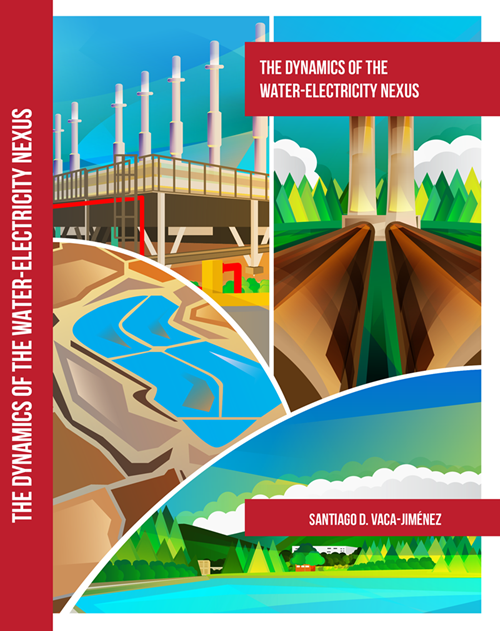PhD defense: The dynamics of the Water-Electricity Nexus | mr. S.D. (Santiago) Vaca Jiménez, MSc
| When: | Fr 23-10-2020 16:15 - 17:15 |
| Where: | Academy building and live stream |
LIVE STREAM
|
PhD ceremony:
| |
|
When:
|
October 23, 2020
|
|
Start:
|
16:15
|
|
Supervisors:
|
dr. ir. S. (Sanderine) Nonhebel, prof. M.A. (Rien) Herber
|
|
Where:
| |
|
Faculty:
|
Science and Engineering
|
|
Research Institute:
|
Summary
Water is needed for electricity generation, for example, for hydropower plants or cooling water for thermal power plants. Freshwater is a scarce resource that will become increasingly scarce in the future as competition intensifies. It is, therefore, essential to map water-electricity relationships.
The thesis of Salvador Vaca Jiménez first analyzes the existing literature on the water-electricity nexus and, subsequently, the temporal and spatial dynamics of electricity supply in Ecuador, which is a model for the global electricity supply. Only a few publications dominate the literature, especially publications from the last century for the U.S. so that new publications receive insufficient attention.
His dissertation further shows that even in a wet country like Ecuador, fluctuations in water availability limit the production of hydropower plants, so that less electricity is produced for a few months. In the event of water shortages in the Pacific basin, hydropower plants in the Amazon take over. In the event of production loss in the Amazon basin, thermal power plants are used. These changes in electricity generation cause temporal and spatial changes in the water footprint (WF). When water availability is limited, water-efficient technologies are applied, decreasing the WF. Hydropower plants with a large water storage capacity also have variation in their WF due to the relationship of water availability, climate, and power planning. The assessment of the dynamics of the water-electricity system is essential for determining the best electricity mix with the lowest water consumption. This insight is also crucial for other countries.
Dissertation: http://hdl.handle.net/(...)3a-aadc-899d819dd00f

